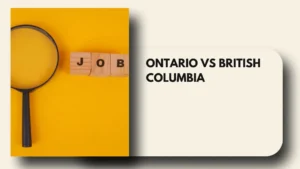- A research proposal is crucial for securing admission to research-based programs and obtaining research funding. It demonstrates your ability to plan and execute a research project, showcasing the significance and feasibility of your ideas.
- Countries like the USA, UK, Canada, Australia, and Germany require a well-crafted research proposal as part of their academic application process.
- To write an effective research proposal, choose a topic you are passionate about, define a clear research problem, align your objectives with your methodology, and ensure that your timeline and scope are realistic.
- Understanding the Purpose of a Research Proposal
- Common Applications That Require a Research Proposal
- Countries Where Research Proposals are Required?
- What is the Format of a Research Proposal?
- How to Craft a Compelling Research Proposal?
- Tips for Submitting Your Research Proposal
- Key Takeaways by AdmitX
- FAQs
A research proposal is the foundation of any significant academic research journey. Whether you are applying for a master’s by research, a PhD, or preparing for a long-term academic project, a well-written research proposal can determine your path to success.
It outlines your research problem, the rationale behind it, and how you plan to go about solving it. Universities, supervisors, and funding bodies carefully examine your research proposal to assess the relevance, originality, and feasibility of your ideas.
This blog will guide you through the essentials of a research proposal, covering its structure, purpose, and how to craft one that stands out.

Understanding the Purpose of a Research Proposal
A research proposal serves multiple purposes. It is not just a formality but a critical document that showcases your ability to think independently and your preparedness for advanced academic work.
It presents a roadmap for your intended research and demonstrates that you are aware of the existing scholarship, key debates, and gaps in your field. It also justifies the importance and originality of your proposed research while outlining the methodology and potential outcomes.
Universities and funding bodies assess research proposals to evaluate not only the merit of the topic but also the candidate’s ability to carry it through. A clear and realistic research proposal shows that you have given thought to the research process and are capable of handling the complexities that might arise.
Common Applications That Require a Research Proposal
Research proposals are commonly required in the following situations
- Applications for master’s by research or doctoral programs
- Seeking academic research funding or grants
- Preparing for academic conferences or collaborative research
- Planning long-term academic projects and dissertations
Countries Where Research Proposals are Required?
Research proposals are especially important in countries where postgraduate education places a strong emphasis on independent research from an early stage. Here are some top destinations where a research proposal is almost always required.
United States
In the United States, while taught master’s programs may not require proposals, research-heavy master’s and all doctoral programs usually do. For funding, grants, and academic research roles, proposals are expected to be detailed and rigorously reviewed.
Canada
In Canada, research-based graduate programs usually require a detailed proposal that aligns with the interests of faculty members. Many Canadian institutions expect applicants to identify potential supervisors before applying.
United Kingdom
Research proposals are often part of the application process for master’s by research and PhD programs. Many universities expect you to approach a supervisor with a research idea and a draft proposal before formally applying.
Australia
Research proposals are mandatory for higher research degrees and scholarships such as the Australian Government Research Training Program. They form a critical part of securing university admission and supervisor support.
Germany
In Germany, where tuition-free education is a major draw, a strong research proposal is essential for PhD programs. You usually need it to secure a supervisor before you can even begin the formal application process.
What is the Format of a Research Proposal?
Below, we have broken down the format of a research proposal for master’s by research and PhD applicants and students.
Title
- Your research title should be concise and descriptive.
- It should clearly convey the focus of your research while being specific enough to indicate the direction of your study.
- A good title often evolves during the proposal writing process, but it must capture the essence of your topic.
Introduction
- The introduction provides background information on the topic and sets the context for your research.
- It should outline the research problem, the main questions you plan to address, and the relevance of your study.
- The introduction sets the tone for the proposal, giving the reader a clear idea of what to expect.
Research Problem and Objectives
- This section delves deeper into the issue you are investigating.
- Explain why the problem is significant, what gaps exist in current knowledge, and why it is worth exploring.
- Clearly define your research objectives and questions. These should be specific, measurable, achievable, relevant, and time-bound.
Literature Review
- The literature review shows that you have engaged with the existing body of knowledge in your field.
- Summarise key works, highlight major debates, and identify gaps that your research intends to fill.
- It helps position your work within the academic conversation and justifies your research focus.
Research Methodology
- This is a crucial section where you describe how you will carry out your research.
- Specify whether your study is qualitative, quantitative, or mixed methods. Discuss data collection techniques such as interviews, surveys, archival research, or case studies.
- Explain your sampling strategies, analytical tools, and any theoretical frameworks you plan to use.
- Also, mention potential limitations and how you will address them.
Expected Outcomes
- While research outcomes cannot always be predicted with certainty, you should provide a reasonable idea of what you expect to discover.
- This could be in terms of insights, contributions to theory, or policy implications.
- Describe how your research might influence future work or practice in the field.
Timeline
- Include a tentative timeline that outlines different stages of your research, from literature review to data collection, analysis, and writing.
- This shows that your project is manageable and well-planned.
Bibliography or References
- Provide a list of the academic sources you have cited or plan to consult.
- Use a consistent referencing style as required by your institution, such as APA, MLA, Harvard, or Chicago.
- This section reflects the academic foundation of your research.
How to Craft a Compelling Research Proposal?
Below, we have briefly described how to write a research proposal.
Choose a Topic You Are Passionate About
- Select a research area that genuinely interests you.
- Passion not only sustains you through long hours of reading and writing but also reflects in your proposal.
- Supervisors and selection committees can sense when a candidate is deeply invested in their work.
Do Extensive Background Research
- Before you even begin writing, immerse yourself in reading related to your topic.
- Explore journal articles, books, theses, and recent studies.
- This will help you understand the scholarly landscape and identify areas that require further exploration.
Define a Clear Problem Statement
- Your research proposal should be driven by a clearly defined problem.
- Avoid vague or overly broad topics. Be specific about what you want to explore and why it matters.
- This clarity will make it easier for reviewers to see the value in your work.
Align Objectives With Methodology
- Make sure your research objectives align with your methods.
- If your objective is to explore experiences or meanings, qualitative methods like interviews or ethnography might be suitable.
- If you are testing hypotheses or measuring variables, quantitative methods are more appropriate.
Be Realistic With Scope and Timeline
- One common mistake is proposing a project that is too ambitious or unmanageable within the given timeframe.
- Think practically about what you can achieve and present a balanced research plan.
- Use the timeline to break your project into phases.
Highlight the Originality of Your Study
- Explain how your research differs from or builds on previous work.
- Even if your topic is well-studied, you can bring a new perspective, use a different context, or apply a new methodology.
- Highlighting your unique contribution is key.
- Explain how your research differs from or builds on previous work.
- Even if your topic is well-studied, you can bring a new perspective, use a different context, or apply a new methodology.
- Highlighting your unique contribution is key.
Write With Clarity and Academic Tone
- Avoid jargon and write clearly.
- Your research proposal should be easy to follow while maintaining an academic tone.
- Use formal language, ensure logical flow between sections, and avoid emotional or persuasive writing styles.
Tips for Submitting Your Research Proposal
- Follow the guidelines provided by the university or funding agency
- Proofread multiple times to eliminate errors
- Seek feedback from mentors or peers before final submission
- Include a cover page with your name, title, institution, and date
- If required, include a personal motivation or statement of purpose

Key Takeaways by AdmitX
A research proposal is a formal document that outlines your research plan, detailing the problem you aim to address, why it matters, and how you plan to conduct your research. It is essential for admission to research-based programs, especially in countries like the USA, UK, Canada, Australia, Germany, and the USA, etc., where a well-crafted proposal is a vital part of the application process.
A strong research proposal should demonstrate the originality, significance, and feasibility of your idea, showcasing your understanding of the field and your ability to contribute to it.
FAQs
What is the purpose of a research proposal?
A research proposal is a formal document that outlines the plan for your research. It explains the problem you want to study, why it matters, and how you plan to approach the research.
The proposal is used to demonstrate your understanding of the topic, the significance of your research, and the methodology you will employ. It is also used to secure funding, admission to research programs, or supervisor approval.
What are the key sections of a research proposal?
A research proposal typically includes several key sections: the title, introduction, research problem and objectives, literature review, methodology, expected outcomes, timeline, and references.
Each section serves a specific purpose in outlining your research idea, its context, how you will carry it out, and the expected impact.
How do I choose a good topic for my research proposal?
A good research topic should be something you are genuinely interested in and that has enough depth for an in-depth study. It should also fill a gap in existing research or address a relevant issue.
Make sure the topic is feasible in terms of available resources, time, and expertise. Conduct preliminary research to explore what has been done and identify areas where further investigation is needed.
How long should a research proposal be?
The length of a research proposal can vary depending on the institution or funding agency, but typically, it ranges from 1,500 to 3,000 words. It is important to follow any specific word limits or guidelines provided by the institution or funding body. While concise, your proposal should still thoroughly cover the topic, research questions, methodology, and expected outcomes.
How do I write a convincing research proposal?
To write a convincing research proposal, ensure that you clearly define the research problem, provide a thorough literature review, and outline a feasible methodology.
Write clearly and logically, with a focus on demonstrating your understanding of the field. Highlight the significance of your research and its potential contributions. Lastly, make sure your proposal is realistic in terms of timeline and resources, and be sure to revise and seek feedback to improve clarity and depth.
Check other important documents















